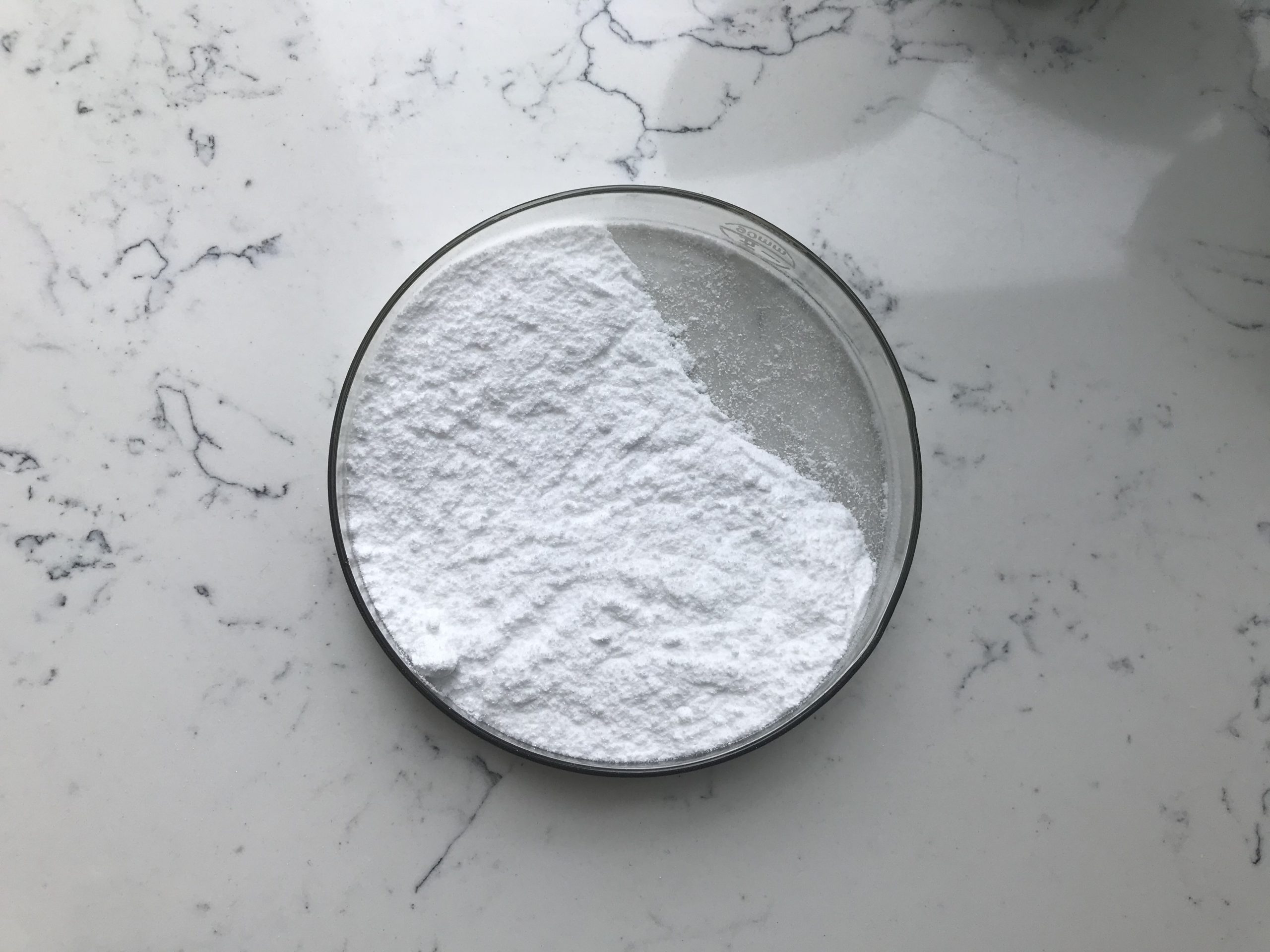L-Theanine is an amino acid commonly found in tea leaves, particularly in green tea. It is known for its calming and relaxation-inducing effects, and it has gained popularity as a dietary supplement for various purposes. Here’s a closer look at the efficacy and functions of L-Theanine:
Stress and Anxiety Reduction: L-Theanine is perhaps most well-known for its ability to promote relaxation without causing drowsiness. It achieves this by increasing the production of certain neurotransmitters, including GABA (gamma-aminobutyric acid), which has calming effects on the brain. As a result, L-Theanine is often used to reduce stress and anxiety.
Improved Focus and Cognitive Function: L-Theanine is often combined with caffeine, such as in tea, where it can mitigate some of the negative side effects of caffeine, such as jitteriness and increased heart rate. The combination of L-Theanine and caffeine has been shown to improve cognitive performance, including attention, focus, and alertness.

Sleep Support: Some studies suggest that L-Theanine may help improve the quality of sleep. It can promote relaxation and reduce the time it takes to fall asleep, making it a potential aid for those with mild sleep disturbances or insomnia.
Blood Pressure Regulation: L-Theanine may have a modest impact on blood pressure. It appears to help regulate blood pressure by relaxing blood vessels and reducing the body’s stress response. However, its effects may not be strong enough to replace other interventions for hypertension.
Antioxidant Properties: L-Theanine has antioxidant properties, which means it can help protect cells from oxidative damage caused by free radicals. This may have potential health benefits, including supporting overall well-being and reducing the risk of chronic diseases.
Mood Enhancement: Some individuals report mood-enhancing effects from L-Theanine supplementation. It may help with feelings of relaxation and well-being, potentially benefiting those dealing with mood disorders.
Weight Management: There is some evidence to suggest that L-Theanine, in combination with caffeine, may aid in weight management by increasing metabolic rate and fat oxidation. However, more research is needed to confirm these effects conclusively.
It’s important to note that while L-Theanine is generally considered safe when taken within recommended doses, individual responses may vary. It is always advisable to consult with a healthcare professional before starting any new dietary supplement regimen, especially if you have underlying medical conditions or are taking medications.
The efficacy of L-Theanine may also depend on factors such as dosage, timing, and individual differences in metabolism and physiology. Therefore, it’s essential to follow dosing guidelines and be patient when assessing its effects on your specific needs and goals.
L-Theanine’s adverse effects
L-Theanine is an amino acid found primarily in tea leaves, especially green tea. It is generally considered safe when consumed at normal dietary levels, and adverse effects are relatively rare. However, some people may experience side effects or adverse reactions when taking L-Theanine supplements. Here are some potential adverse effects:
Gastrointestinal Issues: Some individuals may experience stomach discomfort, nausea, or diarrhea when taking L-Theanine supplements, especially when taken in large doses.
Low Blood Pressure: L-Theanine may have a mild blood pressure-lowering effect. While this is generally considered beneficial for people with high blood pressure, it could potentially cause low blood pressure (hypotension) in some individuals, leading to dizziness or lightheadedness.
Drowsiness: L-Theanine is known for its calming and relaxing effects, which can promote sleep and reduce anxiety. However, excessive consumption or taking it in combination with sedative medications may lead to excessive drowsiness.
Interactions with Medications: L-Theanine may interact with certain medications, particularly those that affect the central nervous system or blood pressure. If you are taking medications, especially for anxiety or blood pressure, consult with your healthcare provider before adding L-Theanine supplements to your routine.
Allergic Reactions: While rare, some individuals may be allergic to L-Theanine or experience allergic reactions. Symptoms may include itching, hives, swelling, or difficulty breathing. Seek immediate medical attention if you suspect an allergic reaction.
Pregnancy and Breastfeeding: There is limited research on the safety of L-Theanine supplementation during pregnancy and breastfeeding. It is generally recommended to avoid supplements during these periods, as their safety is not well-established.
Potential for Dependence: Although not common, there have been reports of people developing a tolerance or dependence on L-Theanine when using it in high doses for an extended period. This can lead to the need for increasing doses to achieve the same effects.
It’s important to note that most people can safely consume L-Theanine from natural sources like tea without experiencing adverse effects. However, if you plan to take L-Theanine supplements or have any concerns about its use, it’s advisable to consult with a healthcare professional, especially if you have underlying medical conditions or are taking other medications. They can provide personalized guidance and monitor your response to the supplement.
